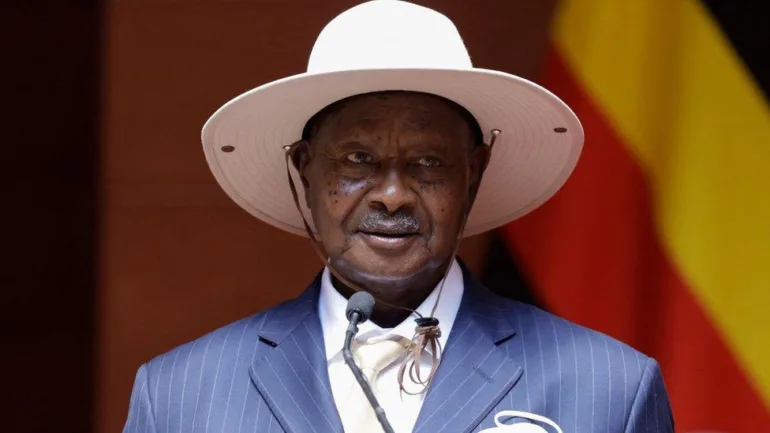Ugandan President Yoweri Museveni on Monday signed a controversial new law permitting civilians to be tried in military courts, a move critics warn could be used to target opposition figures ahead of the country’s 2026 general elections.
The law’s enactment comes just months after Uganda’s Supreme Court ruled in January that it was unconstitutional to prosecute civilians in military courts, a ruling that directly impacted the case of veteran opposition leader Kizza Besigye.
Besigye, 69, was abducted by armed men in Nairobi in November and resurfaced days later at a Ugandan military court, where he was charged with treason, a capital offense under Ugandan law. His case was later transferred to a civilian court following the Supreme Court’s judgment.
Despite the ruling, the newly signed legislation introduces “exceptional circumstances” under which civilians can be subject to military jurisdiction. These include the “unlawful possession of arms, ammunition, or equipment”—one of the remaining charges Besigye still faces.
The Ugandan parliament announced the signing of the law via its official X (formerly Twitter) account.
Besigye’s lawyer, Erias Lukwago, described the law as a tool designed to legitimize the “illegal detention and trial” of Besigye and other government critics. Besigye has now spent more than six months in detention—beyond the legal limit for holding a suspect without trial.
Another prominent opposition leader, Robert Kyagulanyi (popularly known as Bobi Wine), told AFP that the law represents a broader crackdown on dissent: “All of us in the opposition are being targeted by the Act,” he said.
Human rights lawyer and activist Eron Kiiza, who was himself jailed by a military court for six months while defending Besigye, also vowed to legally challenge the law’s constitutionality.
Rights groups have linked the renewed legal pressure on opposition figures—including Besigye’s abduction and treason charge—to Museveni’s ambitions to extend his four-decade rule. The 80-year-old leader is expected to run for re-election in January 2026.
AFP


